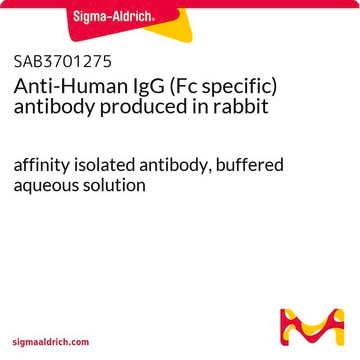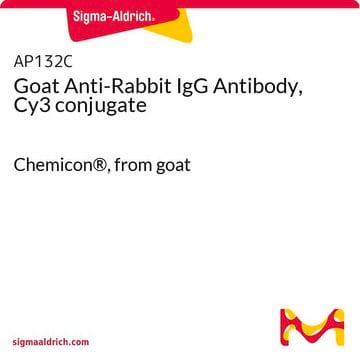FCMAB103AP
Milli-Mark Anti-Ki67 Antibody, clone Ki-S5 APC conjugate
clone Ki-S5, Milli-Mark®, from mouse
Synonym(s):
MKI67
KIA
Ki-67
About This Item
Recommended Products
biological source
mouse
Quality Level
conjugate
Allophycocyanin conjugate
antibody form
purified immunoglobulin
antibody product type
primary antibodies
clone
Ki-S5, monoclonal
species reactivity
human
manufacturer/tradename
Milli-Mark®
technique(s)
flow cytometry: suitable
immunocytochemistry: suitable
immunohistochemistry (formalin-fixed, paraffin-embedded sections): suitable
isotype
IgG1
NCBI accession no.
UniProt accession no.
shipped in
wet ice
target post-translational modification
unmodified
Gene Information
human ... MKI67(4288)
General description
Specificity
Immunogen
Application
Signaling
Cell Cycle, DNA Replication & Repair
Quality
Target description
Physical form
Storage and Stability
Analysis Note
Stimulated Jurkat Cells
Legal Information
Disclaimer
Not finding the right product?
Try our Product Selector Tool.
Storage Class Code
10 - Combustible liquids
WGK
WGK 2
Flash Point(F)
Not applicable
Flash Point(C)
Not applicable
Certificates of Analysis (COA)
Search for Certificates of Analysis (COA) by entering the products Lot/Batch Number. Lot and Batch Numbers can be found on a product’s label following the words ‘Lot’ or ‘Batch’.
Already Own This Product?
Find documentation for the products that you have recently purchased in the Document Library.
Our team of scientists has experience in all areas of research including Life Science, Material Science, Chemical Synthesis, Chromatography, Analytical and many others.
Contact Technical Service




